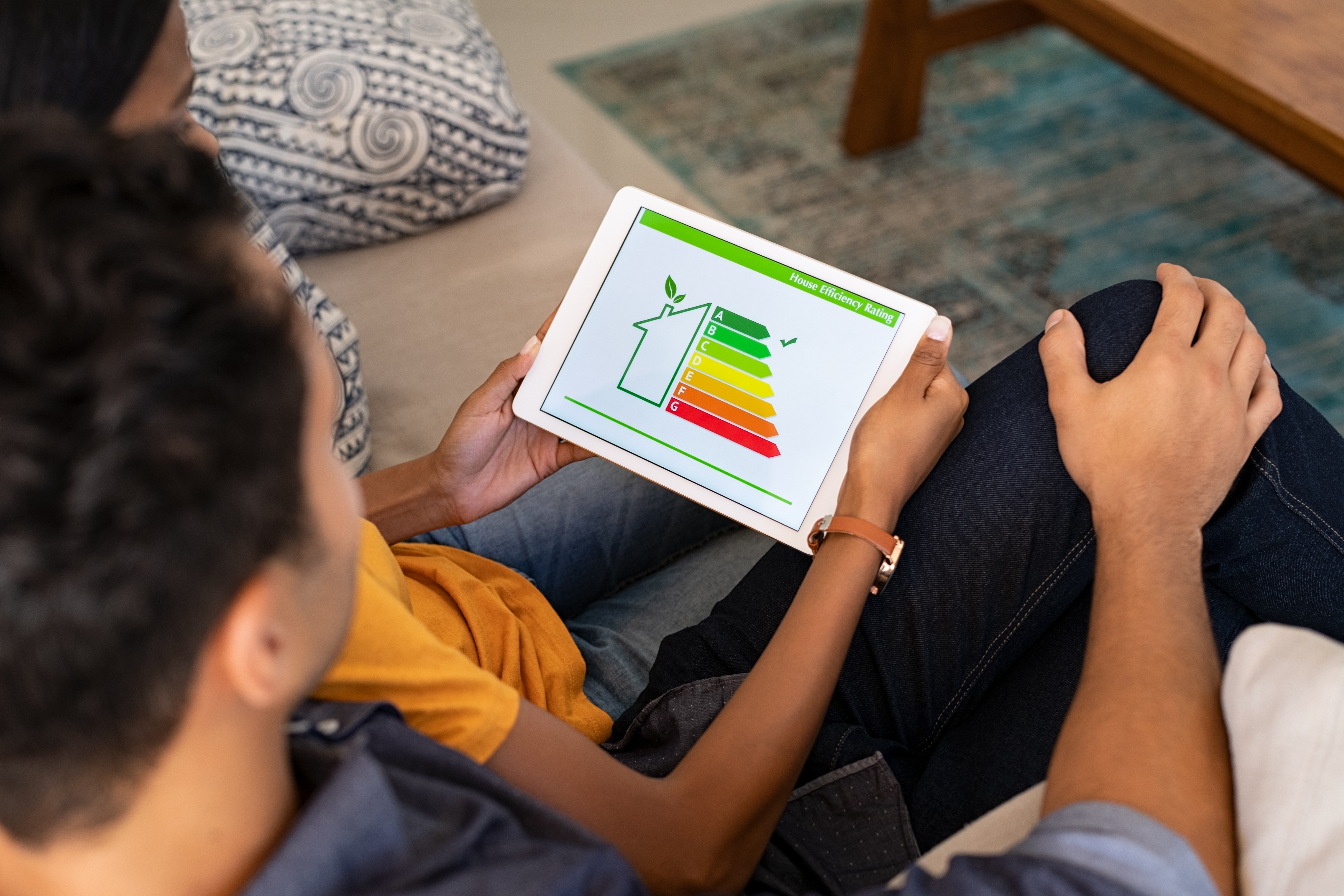Energy-efficient home upgrades are as practical as they are environmentally conscious and financially smart. With just a few simple improvements, you can make your home function more effectively while saving money and helping the planet.Whenever you're thinking about home appliances and upgrades, it's important to keep product protection in mind so you can get the most out of your purchase. When you subscribe to Mulberry Unlimited, you'll get coverage for your energy-efficient upgrades, systems, and more under the same product protection plan, so you're ready for anything.
What is energy efficiency?
Energy efficiency is the use of less energy to perform the same task or produce the same result. Energy-efficient homes use less energy to heat, cool, and run appliances and electronics, reducing the energy costs for you.
There many reasons why it makes sense to consider energy-efficient upgrades to your home, especially when it comes time to replace your appliances and electronics. Concerns surrounding climate change are one topic that's making homeowners more cognizant of their carbon footprint and how to minimize their impact on the environment. As much of the population is focused on this, an eco-friendly home also makes your property more appealing and marketable when it comes time to sell.
Energy-efficient home upgrades are also economically-friendly. Though the upgrades require upfront investments (some less than others), you'll save money on your associated utility bills for the long-term. Many energy-efficient upgrades are also eligible for tax credits and rebates, which helps to defray your initial investment.
The Non-Business Energy Property Tax Credit is one example that allows qualifying homeowners to get a tax credit for 10% of the cost of their energy-efficient equipment, up to $500. Some of the eligible equipment includes:
- Air source heat pumps
- Central air conditioning
- Gas, propane, or oil hot water boiler
- Gas, propane, or oil furnaces and fans
- Non-solar water heaters
You can also find state-level incentives for renewables and efficiency as well as rebates from utility companies. It's worth doing some research to see what money-back opportunities you already qualify for, and what you could qualify for with additional home improvements.
What are the best energy-efficient home upgrades?
If you're wondering how to make your home energy efficient, we researched some of the top upgrades. All of these upgrades are eligible for coverage under Mulberry Unlimited, so be sure to subscribe so you can protect your investments for the long-term.
Tankless water heater
A tankless water heater helps save you money and increase your home energy efficiency by up to 34% if you use less than 40 gallons of water per day. A 10-minute shower averages 20 gallons versus a full bath that averages 36 gallons! The cost-savings will also vary depending on whether you need a gas tankless water heater or an electric tankless water heater. You could save 16 gallons a day just by taking a shower instead of a bath.
You will have to make an investment to upgrade to replace your water heater, but as long as you protect your new equipment with an extended warranty, you can rest assured that your energy-efficient investment will last for years to come. A Rinnai tankless water heater will run you $680, and you can add Mulberry Unlimited coverage for just $9.99 a month.
Air conditioner
You’re a great candidate for a new, energy-efficient air conditioner if your current unit is old, if you currently have a window air conditioner or portable air conditioner...or if you have ac blowing hot air. When an inefficient ac unit has to work harder to keep your space cool, it runs up your utility bills. How long do ac units last? The average window air conditioner will last 8-10 years with proper appliance maintenance.
While a new AC unit would require a significant investment (especially if you'd need a full system installation), there are energy-efficient window air conditioner options available. Check out a Walmart air conditioner or Home Depot air conditioner and compare the prices - this LG air conditioner with an energy star rating is only $289, and you can cover it under Mulberry Unlimited for just $9.99 a month.
Smart thermostat
Are smart thermostats worth it? Absolutely. Not only do they help the environment, but when you install a smart thermostat you can reduce your energy bills by up to 23%. How to change a thermostat is one of the easiest things to do (and if you aren't handy you can YouTube nearly any brand and see exactly how to change out your old thermostat).
Smart thermostats are one of the most inexpensive energy-efficient upgrades you can make. Nest, ecobee and Honeywell are a few of the popular smart thermostat brands - check out this article to learn what are the best smart thermostats and how smart thermostats work.
Fireplace inserts
Did you know that up to 95% of residual heat in a traditional wood fireplace doesn’t get retained in your home? Many homeowners are now opting for fireplace inserts to have more control over the airflow. What is a fireplace insert? It's basically a fireproof box that's designed to fit inside your existing fireplace that by design, produces more heat and uses less fuel.
Fireplace inserts allow the fire to burn more efficiently by sealing your existing chimney, eliminating drafts and increasing heating efficiency. With the chimney sealed, your home will stay warmer in the winter and cooler in the summer. A fireplace insert helps to reduce emissions, increase your home's efficiency, and save you money on heating bills.
New windows
You might be surprised to know that your windows are another big contributor to your home's heat loss. 25%-30% of your cooling and heating energy use is due to heat lost and gained through your windows. The more heat that escapes, the harder your heating unit has to work. Similarly, if your home isn’t keeping the heat out during warmer months, your AC unit will have to work harder. When you replace your older windows with newer, energy-efficient windows, you’ll see immediate results in lower energy bills.
How much do new windows cost? Though it depends on the number and size of windows in your home, replacing windows is an expense you'll likely have to save and budget for. However, there are easy DIY-updates you can make to your existing windows to improve their efficiency. Replacing old weatherstripping or caulking the gaps where you can feel air coming in are inexpensive and effective as you plan for your new window upgrade. Windows are also eligible for extended warranty coverage, so ensure you add the cost of an extended warranty into your budget.
Product protection for every upgrade
Hopefully this has you thinking of which equipment upgrades would be the most beneficial for your home, it’s time to plan.
Luckily, all of these energy-efficient upgrades are eligible for Mulberry Unlimited product protection. No matter where you decide to invest, ensure your purchases are covered by an extended warranty and you’ll be able to keep your upgrades functioning like new for a long time.






